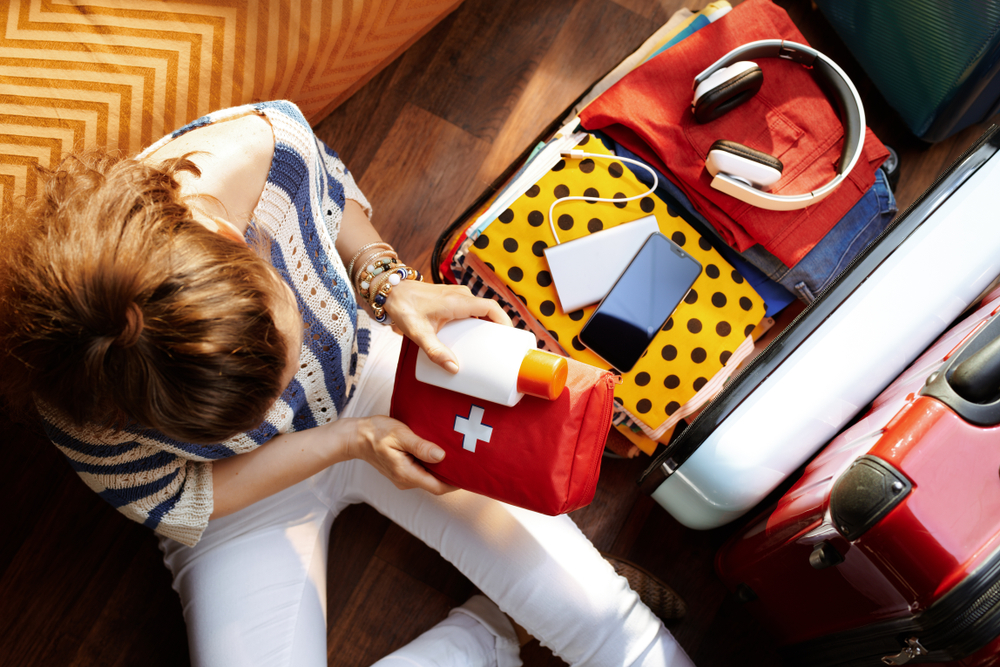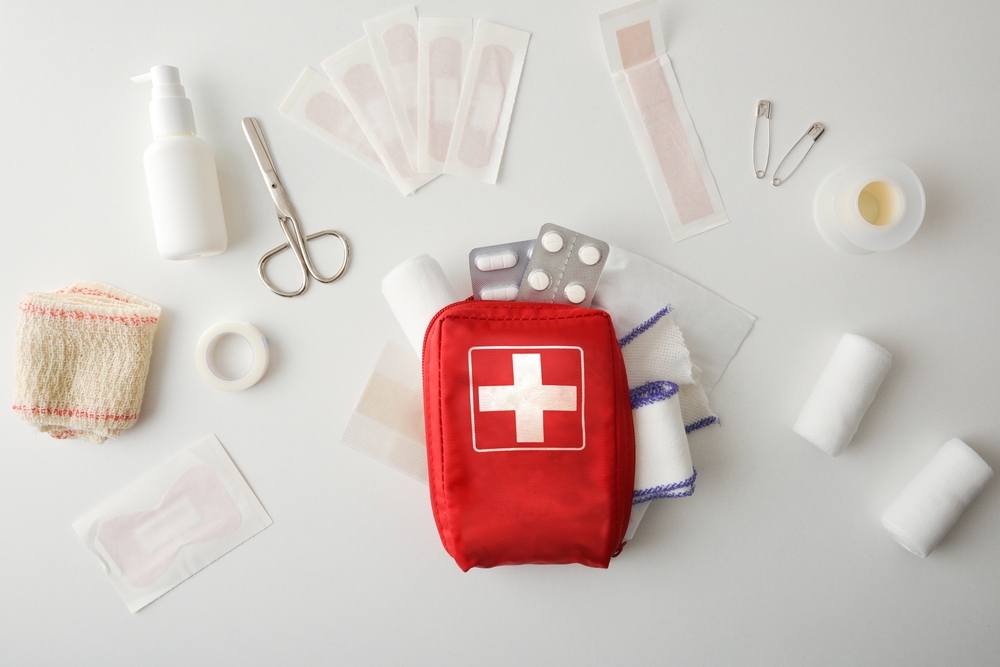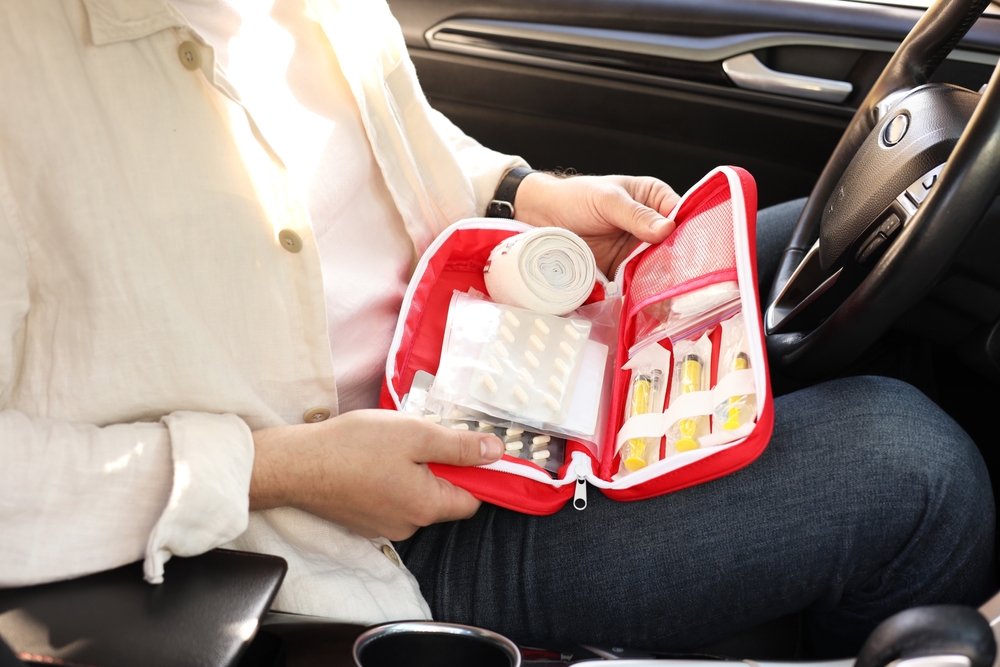The Worst Mistakes to Avoid When Packing Your Travel First Aid Kit
A well-packed travel first aid kit is essential to safe and responsible travel. It serves as a crucial resource for addressing minor health issues and potential emergencies while away from home. However, many travelers make significant errors when assembling their kits, potentially compromising their health and safety abroad. This article will address the most critical mistakes to avoid when packing a travel first aid kit.
Mistake 1: Forgetting to Check Destination-Specific Needs
One of the most serious oversights in packing a travel first aid kit is failing to consider the specific health requirements of the destination. This mistake manifests in two primary ways:

- Overlooking climate-specific items: Different environments pose unique health challenges. For instance, tropical climates necessitate high-SPF sunscreen and effective insect repellent. Failure to include these can lead to severe sunburn or an increased risk of insect-borne diseases. Similarly, cold climates require items like lip balm and moisturizer to prevent chapping and dryness.
- Ignoring local health risks and recommended medications: Each region has its own set of health concerns. Travelers must research and prepare for these specific risks. For example, visiting areas with high malaria risk requires appropriate antimalarial medication. Likewise, destinations with poor sanitation may necessitate water purification tablets or oral rehydration salts. Neglecting to include these items can expose travelers to serious health risks.
To avoid this mistake, thoroughly research your destination’s climate, endemic diseases, and recommended precautions. Consult travel health websites and seek advice from healthcare professionals familiar with travel medicine.
Read: What Not To Do When Booking Monastery Tours in Meteora
Mistake 2: Packing Only for Emergencies
While preparing for emergencies is important, focusing solely on major medical events is a significant error. This mistake typically involves:
- Neglecting common, minor ailments: Most travel health issues are not emergencies but rather common problems like headaches, digestive issues, or minor injuries. A well-prepared first aid kit should include remedies for these frequent occurrences. Essential items include pain relievers, antacids, anti-diarrheal medication, and basic wound care supplies.
- Overlooking the importance of daily medications: Travelers with ongoing health conditions must prioritize their regular medications. Packaging an ample supply of these medicines is crucial, exceeding the planned duration of the trip. Additionally, carrying copies of prescriptions is essential in case medications are lost, or additional supplies are needed.
To address this mistake, create a comprehensive list of both emergency supplies and items for managing everyday health concerns. Ensure that all regular medications are included in sufficient quantities, and obtain any necessary documentation for carrying these medications across borders.
Mistake 3: Overpacking or Underpacking
Achieving the right balance in packing a travel first aid kit is crucial. Both overpacking and underpacking present distinct risks:

- Risks of carrying too much: Overpacking a first aid kit can lead to several issues:
- Increased weight and bulk make the kit cumbersome and potentially incur excess baggage fees.
- Difficulty in locating essential items quickly due to clutter.
- Wastage of space that could be used for other travel necessities.
- Dangers of not packing enough essential items: Underpacking can leave travelers vulnerable to health risks:
- Insufficient supplies for the duration of the trip, potentially leading to compromised health care.
- Lack of preparedness for unexpected medical needs or emergencies.
- Increased reliance on potentially unavailable or substandard local medical supplies.
To avoid these issues, create a comprehensive list of essential items based on the trip duration, destination, and personal health needs. Regularly review and adjust the kit’s contents to maintain an optimal balance.
Read: What Not To Do When Booking Hotels in Zadar
Mistake 4: Ignoring Expiration Dates and Storage Conditions
Proper attention to the condition and storage of first aid supplies is essential for their effectiveness:
- Importance of checking medication expiration dates:
- Expired medications may lose potency or become harmful.
- Regularly inspect all items in the kit, replacing any that are expired or close to expiration.
- Pay particular attention to liquid medications, which may expire more quickly.
- Proper storage of temperature-sensitive items:
- Many medications and medical supplies are sensitive to temperature extremes.
- Store the kit in a cool, dry place to maintain the integrity of its contents.
- Be aware of items requiring specific storage conditions (e.g., insulin) and plan accordingly.
Implement a system for regular checks of expiration dates and storage conditions. Consider using a checklist or digital reminder to ensure timely replacement of expired items.
Mistake 5: Not Familiarizing Yourself with Kit Contents
Understanding the contents of your first aid kit and how to use them is crucial for effective emergency response:
- Importance of knowing how to use each item:
- Lack of familiarity with kit contents can lead to delayed or improper emergency treatment.
- Read and understand the instructions for all medications and medical devices in advance.
- Consider taking a basic first aid course to enhance your ability to use the kit effectively.
- Organizing items for easy access:
- Poor organization can result in wasted time searching for needed items during emergencies.
- Implement a logical organization system, such as grouping similar items together.
- Use clear, labeled containers or compartments within the kit for easy identification.
- Keep a contents list in the kit for quick reference.
Regularly review the contents of your kit, ensuring you understand the purpose and proper use of each item. Practice locating and using key items to build familiarity and confidence in emergency situations.

Mistake 6: Forgetting Personal Medical Information
Neglecting to include personal medical information in your travel first aid kit can have serious consequences:
- Importance of including medical history, allergies, and emergency contacts:
- In emergencies, this information is crucial for healthcare providers to administer appropriate treatment.
- Include a concise medical history detailing chronic conditions, current medications, and known allergies.
- List emergency contact information, including names, phone numbers, and email addresses.
- Consider wearing a medical alert bracelet for critical conditions or allergies.
- Neglecting to carry insurance information:
- Failure to have readily accessible insurance information can delay treatment and cause financial stress.
- Include copies of health insurance cards and travel insurance policies in your kit.
- Store digital copies securely online for backup access.
Prepare a comprehensive medical information card or document. Update it regularly and ensure it’s easily accessible within your first aid kit.
Read: The Worst Times to Visit Zadar: Avoid These Crowded Seasons
Mistake 7: Not Considering Travel Regulations
Failing to account for travel regulations can lead to confiscation of necessary medical supplies or legal issues:
- Overlooking liquid restrictions for carry-on luggage:
- Many medications and first aid items are subject to airline liquid restrictions.
- Familiarize yourself with current TSA or equivalent international regulations.
- Pack essential liquids in appropriate sizes or obtain the necessary documentation for exceptions.
- Ignoring country-specific medication restrictions:
- Some common medications in one country may be illegal or restricted in others.
- Research medication laws for all countries you plan to visit or transit through.
- Obtain any necessary documentation or prescriptions to carry your medications legally.
Before travel, thoroughly research airline and destination country regulations regarding medications and medical supplies. Consult with the relevant embassies or a travel medicine specialist when in doubt.
Additional Resources
For further information on travel health preparation, consider the following resources:
- Reputable travel health organizations:
- World Health Organization (WHO) – International Travel and Health: www.who.int/travel-advice
- Centers for Disease Control and Prevention (CDC) – Travelers’ Health: wwwnc.cdc.gov/travel
- International Society of Travel Medicine: www.istm.org
- Suggested apps or tools for travel health preparation:
- International SOS (provides medical and travel security advice)
- Smart Traveler (U.S. Department of State app for travel alerts and information)
Utilize these resources with professional medical advice to ensure comprehensive travel preparation. Remember, a well-prepared traveler is better equipped to handle health challenges and enjoy a safe journey.






